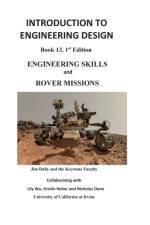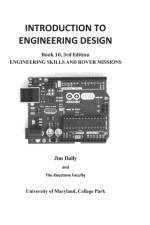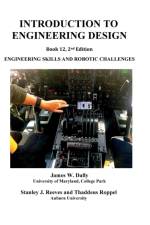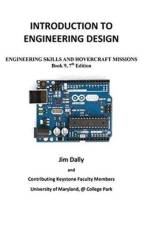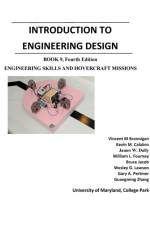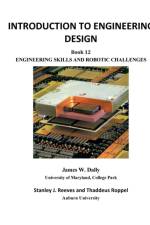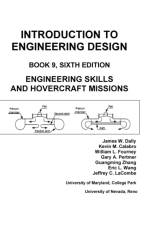- Book 12, 2nd edition: Engineering Skills and Robotic Challenges
von James W Dally, Thaddeus Roppel & Stanley Reeves
94,00 €
This book is the second edition of the twelfth textbook in this series: Introduction to Engineering Design. Jim Dally, working with College House Enterprises, LLC and faculty members at the University of Maryland, the University of Nevada @ Reno, University of California @ Irvine and Auburn University, has prepared eleven previous textbooks in this series-a new one almost every 18 months. These books are written for the first-year engineering students at one of the universities listed above. This second edition of Book 12 prepared for Auburn University involves Robotic Challenges in addition to several chapters dealing with content necessary for entering first year students to understand.This textbook is used to support the students during the entire semester. Some of the material may be covered in lecture, recitation or in a computer laboratory or a model shop. Additional material is covered with reading assignments. In other instances, the students use the text as a reference document for independent study. Exercises, provided at the end of each chapter, may be used for assignments. The book contains 15 chapters presenting many topics that first year engineering students should understand as they proceed through the engineering curriculum. Three chapters dealing with engineering and society are included. A historical perspective on the role engineering played in developing civilization and on improving the lives of the masses is presented in Chapter 1. In this chapter, we move from the past into the present and indicate the current relationship between business, consumers and society. The twenty greatest engineering achievements of the 20th century are briefly described. Chapter 5 discusses the balance between safety and performance. Methods to evaluate and recognize risky environments are discussed. The chapter includes a listing of hazards, which is important in identifying the many different ways users of a product can be injured. Chapter 4 on ethics, character and engineering includes a large number of topics so the instructor can select from among them. A description of the Challenger and Columbia accidents is also given, because both of these fatal crashes provide excellent case histories covering safety related conflicts between management and engineers. A new reference to a video produced by the New York Times has been added. We strongly recommend viewing it.An introduction to the engineering profession, described in Chapter 2, covers engineering disciplines, on-the-job activities, salary statistics and registration information for your PE license. A useful student survival guide is also included in Chapter 3. We strongly encourage you to read it as it contains information for managing time that will be useful throughout your life.

